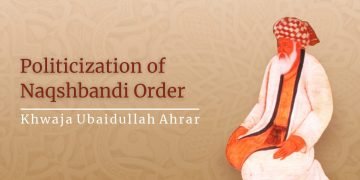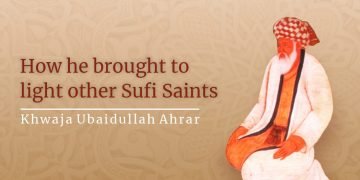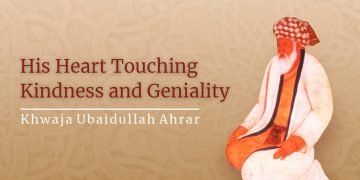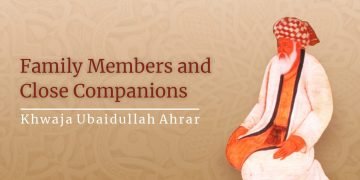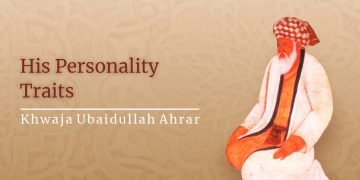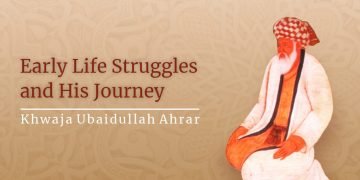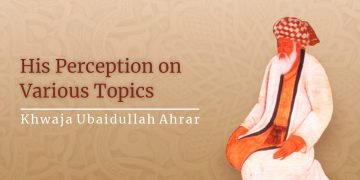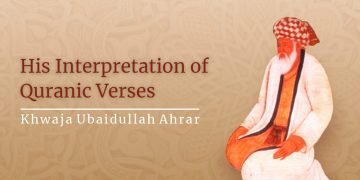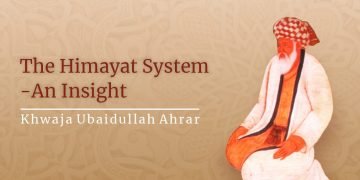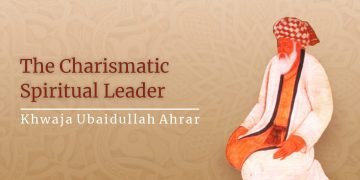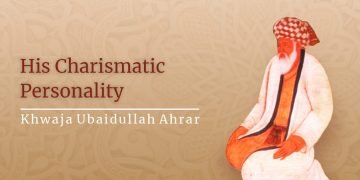Early Life Struggles of Khwaja Ubaidullah Ahrar A spiritual journey is never easy, it involves so many hardships, struggles, patience, perseverance, and vigil. For those who follow their hearts, it gets easier to reach the destination. Khwaja Ahrar’s life wasn’t always too easy if we go through historical accounts, his early life was full of financial and other troubles. He carved his destiny with sheer determination, mendacity, and hard work. There were days when he had trouble keeping up appearances; he didn’t have proper clothing or enough to eat. But his humility and wisdom never changed even after attaining so much wealth that according to historians was hard to count.
Khwaja Ahrar used to spend his adulthood days in the company of reverend people or alone, not aware of his powers or destiny he would just spend hours sitting and observing everything around him. One night he was sitting at the tomb of Sheikh Zain-ud din, usually, people were afraid to go near it because of rumors about a mad killer taking refuge there but Khwaja Ahrar wasn’t afraid of him or anyone. He suddenly saw a sight of the man, he tried threatening him to go away from there but Khwaja Ahrar stayed.
The mad guy lightened some plants nearby and was about to throw them on Khwaja’s head when suddenly a strong gust of wind came out of nowhere and put out the fire. This further enraged the mad guy and he started saying abusive things to Khwaja but he disappeared in the morning, it was later found out that the mad man went to the market created a fuss and killed a man, so the people gathered and killed him with sticks.
Struggles of Khwaja Ubaidullah Ahrar
Khwaja Ahrar used to experience the unusual when he was meditating in tombs during nights. Things that common people would never experience, one night while sitting near the tomb of Sheikh Khavand Tahur, he heard someone coughing from the grave, he also saw a black object falling from somewhere in the same tomb circling his head.
When Khwaja Ahrar was only eighteen, he could hear people and nature chanting the greatness of the Lord. He could listen to the winds and trees describing the magnificence of their creator. From his early childhood to the adult period, he could hear God’s name being told by creatures and he never had to put much effort into understanding what these sounds were trying to convey to him.
Khwaja Ubaidullah Ahrar lived in quite miserable conditions in his early adulthood. He didn’t have money. He himself gave an account of his clothing in “The Masters of Wisdom”; his turban was in a very bad condition. One day he was in the market and a beggar asked him for money or food. Khwaja had nothing to give him but he so wanted to help him, he saw a cook and gave the turban to him saying that its clean and can be of use to him, he asked the cook to give beggar food in return of the cloth he gave, though the cook tried returning Khwaja’s turban and offered food to the beggar anyway but he thanked him as his self-respect didn’t allow it.
He didn’t have a donkey or a horse to travel. The clothing he had couldn’t be changed before a year and he could afford to buy a jacket or coat once after three years. For ablution or shower in damp winters, he couldn’t have warm water. Away from home, those years he spent in utter frustration and poverty. But Khwaja Ahrar never accepted any gifts, favors or invitations even during those times.
Because of Khwaja Ahrar’s company with Khwaja Muhammad Parsa, there was a leader of money lenders during the reign of Mirza Shahrukh who wanted Khwaja Ahrar to have food with him. He, however, didn’t accept any invitation, Ramadan started and that man came to Khwaja himself and asked him to break the fast with him every day to which he excused but the man insisted and put a condition that he otherwise would divorce his wife.
Khwaja Ahrar hearing that agreed to eat at his table. That chief helped Khwaja in several ways and he remembered his kindness and favors, so when Khwaja was able to return them he gave deceased man’s son ten thousand dinars as a token of gratitude.
Khwaja Ahrar set an example for other religious and Sufi leaders that accepting gifts and favors from people isn’t right. He could never accept presents, once an expert and renowned tailor sent him a hand-stitched Kaftan made of white wool, Khwaja returned the gift and offered it from his side ensuring it was made lawful.
In his twenties, Khwaja Ahrar was a passionate learner, his maternal uncle sent him to Tashkent for studying esoteric subjects; he loved the mystery of abstract subjects and pursued them with his heart and soul. He met the spiritual guides of Transoxiana and learned a lot from their sermons.
After moving back to Herat at the age of twenty-four, he became a disciple of Sufi Sheikhs with whom he stayed for a good five years. He started farming at the age of twenty-nine and God bestowed him with success and money in this endeavor. He was able to improve his financial status in a short span of time. With his astuteness, hard work and business sense he ventured in to trade as well. There came a time when it became hard to keep a record of his assets.
The Sufi in Khwaja Ahrar however, became more humble, generous and giving towards his people. He wouldn’t say no to a needy, he took measures to improve the deplorable plight of Muslims of those times by growing his political and economic influence. His wealth wasn’t for showing off his position; he used it for alleviating poverty, slavery and taxation. He wasn’t happy with the laws of those times and he took numerous steps to abolish brutal practices that were inflicted by the rulers for their vested interests.


